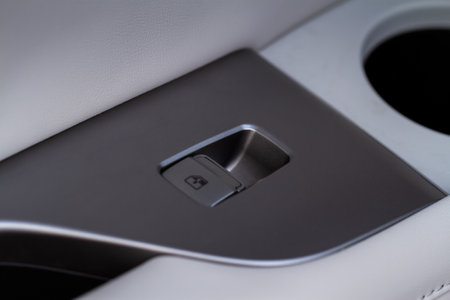Introduction to Black Box Insurance in the UK
Black box insurance, also known as telematics insurance, has rapidly gained traction in the UK insurance market, especially among young and newly qualified drivers. This innovative policy utilises a small device—commonly referred to as a “black box”—which is installed in your car or tracked via a smartphone app. The device monitors driving behaviour such as speed, braking, acceleration, and even the time of day you drive. Insurers use this data to assess how safely you drive and tailor premiums accordingly.
In the UK, traditional car insurance for young motorists can be prohibitively expensive due to higher perceived risks. Black box insurance offers an alternative by rewarding safe driving with lower premiums. It’s particularly appealing to students, new drivers, and parents who want more control over their children’s driving habits.
| Feature | Traditional Insurance | Black Box Insurance |
|---|---|---|
| Premium Calculation | Based on age, postcode, car model, etc. | Based on real-time driving data plus standard factors |
| Potential Discounts | Limited; mainly No Claims Bonus | Rewards for safe driving and adherence to rules |
| User Demographic | All ages; often costly for young drivers | Mainly under 25s and new drivers |
| Feedback Provided | No personalised feedback | Regular feedback on driving style via app/portal |
The popularity of black box insurance has soared as it provides a fairer system for responsible drivers who might otherwise be penalised by blanket risk assessments. With British roads becoming busier and insurance premiums rising, more motorists are considering whether black box insurance could help manage costs while encouraging safer habits behind the wheel.
2. How Does Black Box Insurance Work?
Black box insurance, also known as telematics insurance, is increasingly popular among UK drivers—especially young motorists looking to cut the cost of their car insurance premiums. But what exactly goes on behind the scenes? Understanding how black box technology works can help you decide if this policy type is right for you.
The Technology Behind Telematics
A small device—the “black box”—is professionally installed in your vehicle or sometimes provided as a plug-in gadget or even a mobile app. This device uses GPS and other sensors to collect data about your driving habits in real time. The information is then sent securely to your insurer, who uses it to assess your risk profile and adjust your premiums accordingly.
What Driving Behaviours Are Monitored?
The black box tracks a range of behaviours that are considered indicators of safe or risky driving. Here’s a quick overview:
| Monitored Behaviour | Why It Matters |
|---|---|
| Speed | Consistently staying within speed limits reduces risk of accidents |
| Braking Patterns | Harsh braking may indicate risky driving or lack of attention |
| Cornering | Smooth cornering suggests better vehicle control and awareness |
| Time of Day Driven | Driving late at night or during rush hour is statistically riskier |
| Mileage | The more you drive, the higher your exposure to potential incidents |
| Acceleration | Rapid acceleration can be a sign of aggressive driving behaviour |
How Data Affects Premiums for UK Policyholders
Your insurer analyses this telematics data regularly. If you consistently display safe driving habits, you could see reduced premiums—sometimes even before your annual renewal date. Conversely, risky behaviour may result in higher costs or restrictions on your policy.
This data-driven approach gives policyholders more control over what they pay for cover compared to traditional car insurance policies, which rely heavily on age, postcode, and claims history alone. For UK drivers wanting tailored premiums and feedback to improve their driving, black box insurance offers a modern, tech-savvy solution.

3. Pros of Black Box Insurance
When considering whether black box insurance is worth it in the UK, its important to weigh the financial and safety benefits that are particularly relevant to British drivers. Here’s a breakdown of the key advantages:
Lower Premiums for Safer Drivers
Black box insurance policies reward good driving habits with lower premiums. By monitoring speed, braking, acceleration, and time of driving, insurers can assess risk more accurately and pass on savings to responsible motorists. This is especially beneficial for younger drivers—often facing high premiums due to lack of experience—who can demonstrate safe behaviour and reduce their annual costs.
| Driver Profile | Traditional Premium Estimate (£/year) | Typical Black Box Premium (£/year) | Potential Savings (%) |
|---|---|---|---|
| Young/New Driver (age 17-24) | £1,500 – £2,000 | £900 – £1,300 | Up to 35% |
| Experienced Driver (no claims) | £600 – £800 | £550 – £750 | Up to 10% |
Opportunities for New Drivers
For those just starting out on UK roads, black box insurance can be a gateway to affordable car cover. Insurers view telematics policies as less risky because real-time data helps mitigate poor driving. As a result, new drivers can avoid punitive upfront costs and build up a no-claims discount more quickly by proving their competence behind the wheel.
Incentives Aligned with Better Driving Habits
The structure of black box policies inherently encourages safer driving across the UK. Many insurers offer regular feedback via apps or online dashboards, helping motorists understand how to improve their driving style. Some providers even offer additional rewards—such as cashback or vouchers—for consistently high scores. This aligns personal financial interests with broader road safety goals, making British roads safer for everyone.
Main Financial & Safety Benefits at a Glance:
- Lower premiums: Especially for young or inexperienced drivers.
- No curfews with some policies: Flexible options available depending on insurer.
- Access to feedback: Data-driven tips help drivers improve and save more.
- Potential additional rewards: Discounts and incentives for top performance.
- Easier path to no-claims bonus: Proven safe driving accelerates savings over time.
If youre looking for a cost-effective way to get insured while actively improving your road safety, black box insurance offers several compelling advantages tailored to the realities of UK motoring.
4. Cons and Considerations
While black box insurance can offer attractive savings and promote safer driving, it’s important to weigh the potential drawbacks before committing. Below, we’ll explore some of the main concerns UK drivers should keep in mind.
Privacy Concerns
Black box insurance relies on telematics technology that records detailed information about your driving habits. This includes speed, braking patterns, time of day, and even your location. While insurers use this data to assess risk and set premiums, some policyholders may feel uneasy about the level of personal information being tracked.
| Data Collected | Potential Impact on Privacy |
|---|---|
| Location Tracking | Insurers know where you drive and when, which raises privacy questions. |
| Driving Behaviour (Speed, Braking) | Detailed analysis could be shared with third parties or used against you in disputes. |
Restrictions on Driving Hours
Many black box policies impose curfews or higher charges for night-time driving, as accidents are statistically more likely after dark. For young drivers or those working late shifts—common in cities like London or Manchester—these restrictions can become a significant inconvenience.
| Restriction Type | Effect on Policyholder |
|---|---|
| Night-Time Curfew (e.g., 11pm–5am) | Makes social or work-related late-night travel difficult without risking penalties. |
| Increased Premiums for Late-Night Use | May offset initial savings if your routine involves frequent night driving. |
Impact of UK Road Conditions and Routines
The unpredictable nature of British roads—think narrow country lanes, frequent roundabouts, or stop-start city traffic—can affect your black box score. For example, necessary hard braking on winding rural routes might be penalised by the system, even if it’s unavoidable due to road layout or weather conditions. Similarly, urban drivers dealing with congestion may find their scores impacted by external factors beyond their control.
Typical UK Routine Challenges:
- Bumpy Roads: May lead to higher “harsh braking” incidents recorded by the device.
- Congested City Centres: Frequent stopping and starting could negatively affect your driving score.
- Diverse Weather: Rain and fog require different driving behaviours that might not always align with what the black box “expects.”
Key Takeaway:
If your daily driving involves late hours, busy city centres, or challenging rural routes, carefully review policy terms to ensure you’re not unfairly penalised for circumstances out of your control. While black box insurance offers many benefits for careful drivers, understanding these limitations is crucial before making a decision.
5. Real User Experiences and Common Scenarios
Understanding whether black box insurance is worth it in the UK often comes down to the real-life experiences of those who have tried it. Here’s a balanced summary of feedback from British drivers, highlighting both the advantages and drawbacks commonly reported.
Positive Feedback from UK Drivers
Scenario |
User Experience |
|---|---|
| Young/New Drivers | Many young drivers reported significant savings on their premiums—sometimes up to 30% compared to standard policies. They appreciated being rewarded for careful driving and felt motivated to develop safer habits. |
| Low Annual Mileage | Drivers who don’t cover many miles found that black box insurance offered them fairer pricing based on actual usage rather than estimates, resulting in lower annual costs. |
| Parental Peace of Mind | Parents of new drivers valued the ability to monitor their children’s driving through app dashboards, feeling reassured about their safety and behaviour behind the wheel. |
Negative Feedback and Concerns
Scenario |
User Experience |
|---|---|
| Strict Curfews & Restrictions | Some users found imposed curfews frustrating, especially shift workers or students returning late. Breaking these restrictions sometimes led to increased premiums or policy warnings. |
| Sensitive Scoring Systems | A number of drivers felt that the scoring algorithms were too harsh, penalising minor speed fluctuations or necessary sudden braking, even when it was unavoidable for safety reasons. |
| Privacy Concerns | A minority expressed discomfort about continuous tracking and data sharing with insurers, citing a lack of control over how their driving data might be used in future renewals or claims disputes. |
Common Scenarios Where Black Box Insurance Shines (or Struggles)
- Urban vs Rural Driving: Urban drivers often saw lower scores due to frequent stop-start traffic, while rural drivers benefited from quieter roads and fewer harsh braking events.
- Family Cars: Families sharing one car sometimes struggled if different members had varying driving styles, impacting the overall score and premium.
- Accident Claims: Some users praised black boxes for providing clear accident evidence that helped settle claims quickly, though a few felt their telematics data was misinterpreted during disputes.
The Bottom Line from UK Users
The consensus among UK drivers is that black box insurance can offer substantial savings and promote safer driving, especially for young or low-mileage motorists. However, strict rules, occasional technology hiccups, and privacy issues are common gripes. Weighing these real-world experiences can help you decide if this innovative insurance option matches your lifestyle and expectations.
6. Is Black Box Insurance Worth it in the UK?
When weighing up whether black box insurance is worth it in the UK, its crucial to consider both the potential benefits and drawbacks. This type of car insurance can offer considerable savings, especially for younger or inexperienced drivers who typically face higher premiums. However, there are also limitations and lifestyle considerations that need careful thought.
Pros and Cons at a Glance
| Pros | Cons |
|---|---|
| Potential for lower premiums, especially for young or new drivers | Privacy concerns due to monitoring of driving habits |
| Encourages safer driving, which may reduce accident risk | Penalties or increased premiums for poor driving behaviour |
| Feedback helps improve driving skills over time | Restrictions on night-time driving or mileage limits with some policies |
| Can make insurance accessible for those struggling to find affordable cover | Cancellations or surcharges if terms are breached |
Who Might Benefit Most from Black Box Insurance?
- Younger drivers (aged 17-25): Often see the biggest savings as traditional insurance can be prohibitively expensive.
- Cautious, low-mileage drivers: Those who drive less and stick to speed limits can maximise discounts.
- Parents insuring their children: Offers peace of mind knowing their child’s driving is being monitored and encouraged to be safe.
- Drivers wanting to build a positive record: Good telematics data can help secure better premiums in future years.
Practical Tips for UK Residents Considering Black Box Cover
- Compare policies carefully: Not all black box insurers have the same rules regarding curfews, mileage limits, or penalties. Read the fine print.
- Be honest about your driving habits: If you regularly drive at night or long distances, check how this might impact your premium or policy conditions.
- Monitor your own performance: Use the feedback provided by your insurer’s app or portal to improve your driving and potentially unlock further discounts.
- Check cancellation fees: If your circumstances change (e.g., you sell your car), be aware of any charges for ending your policy early.
- Ask about data usage: Understand exactly what data is being collected and how it will be used by your insurer.
The Bottom Line: Is It Worth It?
If you’re a young or new driver aiming to save money and willing to adapt your driving habits, black box insurance could be an excellent fit. For those who value privacy or have unpredictable schedules, traditional insurance might offer more flexibility. Ultimately, the best approach is to weigh up your personal needs, use comparison sites tailored for the UK market, and seek advice from a trusted financial planner or insurance broker before making a decision.


